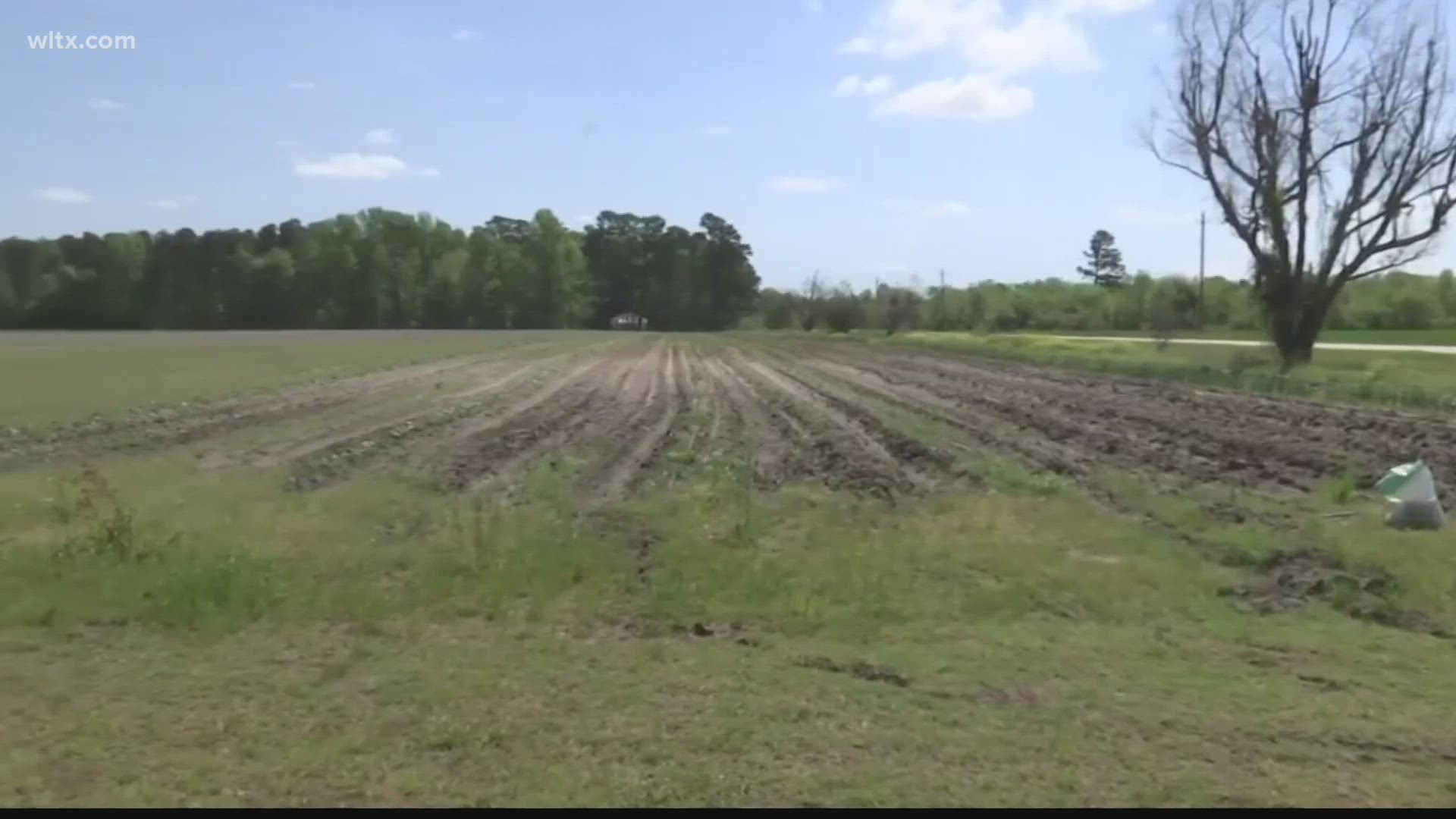COLUMBIA, S.C. — A new partnership with several South Carolina organizations and the American Farmland Trust aims to identify future threats to farmland within the state.
According to the U.S. Department of Agriculture, South Carolina lost more than 1,000 farms between 1997 and 2017.
Michael Gunter has been farming in Lexington County his whole life. He said new homes are popping up as quickly as crops these days.
"Especially west of Lexington on Highway One, there's just an unbelievable amount," said Gunter.
The county has gained more than 40,000 residents since 2010, according to U.S. Census data. Homes for these people are often built on farmland.
"It's kind of daunting, really," said Gunter. "Every acre you take out of production and put a house on especially is never going to produce another crop."
Gunter said housing developers offered to buy his land last year, but he said no.
"But you know, there might be a day when the number might be big enough," said Gunter.
According to American Farmland Trust, four percent of the state's farmland was converted into housing or high-density developments between 2001 and 2016.
Lexington County led the state in conversion, with over 29,000 acres of farmland paved over, fragmented or compromised by commercial, industrial, and residential development.
“We know that there is going to be growth, it's just a matter of when, where, and how," said Director of Special Program Development Billy Van Pelt.
He added Palmetto 2040 seeks to identify how Lexington County’s agriculture, business, quality of life, and environment would be impacted under different three scenarios modeled.
Van Pelt said they'll use data and mapping to come up with solutions, including a Build Better Cities model.
"In that scenario, policymakers, and land use planners promote compact development, reduce sprawl and save irreplaceable farmland from conversion,” said Van Pelt.
Under that model, South Carolinians would be saving 300,000 acres of farmland, equivalent to 2,700 farms and 44,000 jobs, according to Van Pelt.
Farmers like Gunter hope it will preserve the way of life he's always known.
"The salt of the earth is still agriculture. We still gotta eat three times a day," said Gunter.
Van Pelt said there will be numerous meetings in the next few months for residents to attend in order to learn about the findings and give feedback.
Earlier this year lawmakers advanced a bill that would create a working farmland protection fund. It would be within the South Carolina Conservation Bank, specifically to preserve agricultural land.

